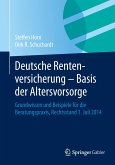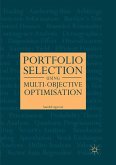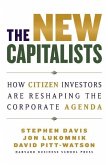Occupational pensions are major participants inglobal financial markets with assets of well over $30 trillion, representingmore than 40% of the assets of institutional investors. Some occupationalpension funds control assets of over $400 billion, and the largest 300occupational pension funds each have average assets of over $50 billion. Theassets of UK pension funds are equivalent to UK GDP, and US pension fund assetsare 83% of US GDP. These statistics highlight the importance of pension fundsas major players in financial markets, and the need to understand the behaviourof these large institutional investors. Occupational pensions also play animportant, but neglected, role in corporate finance. For example, US companypension schemes account for over 60% of company market value, and yet they areoften ignored when analysing companies.
This book is based on the substantial body ofevidence available from around the world on a topic that has becomeincreasingly importantand controversial in recent years. Written forpractitioners, students and academics, this book brings together andsystematizes a very large international literature from financial economists,actuaries, practitioners, professional organizations, official documents andreports. The underlying focus is the application of the principles of financialeconomics to occupational pensions, including the work of Nobel laureates such as Merton, Markowitz,Modigliani, Miller and Sharpe, as well as Black.
This book will give readers an up-to-dateunderstanding of occupational pensions, the economic issues they face, and somesuggestions of how these issues can be tackled. The first section explains theoperation of defined benefit and defined contribution pensions, along with somedescriptive statistics. The second section covers selected aspects ofoccupational pensions. The focus of these first two sections is on the economicand financial aspects of pensions, accompanied by some basic information onhowthey operate. This is followed by three further sections that analyse theinvestment of pension funds, the corporate finance implications of firmsproviding pensions for their employees, and annuities.
This book is based on the substantial body ofevidence available from around the world on a topic that has becomeincreasingly importantand controversial in recent years. Written forpractitioners, students and academics, this book brings together andsystematizes a very large international literature from financial economists,actuaries, practitioners, professional organizations, official documents andreports. The underlying focus is the application of the principles of financialeconomics to occupational pensions, including the work of Nobel laureates such as Merton, Markowitz,Modigliani, Miller and Sharpe, as well as Black.
This book will give readers an up-to-dateunderstanding of occupational pensions, the economic issues they face, and somesuggestions of how these issues can be tackled. The first section explains theoperation of defined benefit and defined contribution pensions, along with somedescriptive statistics. The second section covers selected aspects ofoccupational pensions. The focus of these first two sections is on the economicand financial aspects of pensions, accompanied by some basic information onhowthey operate. This is followed by three further sections that analyse theinvestment of pension funds, the corporate finance implications of firmsproviding pensions for their employees, and annuities.








